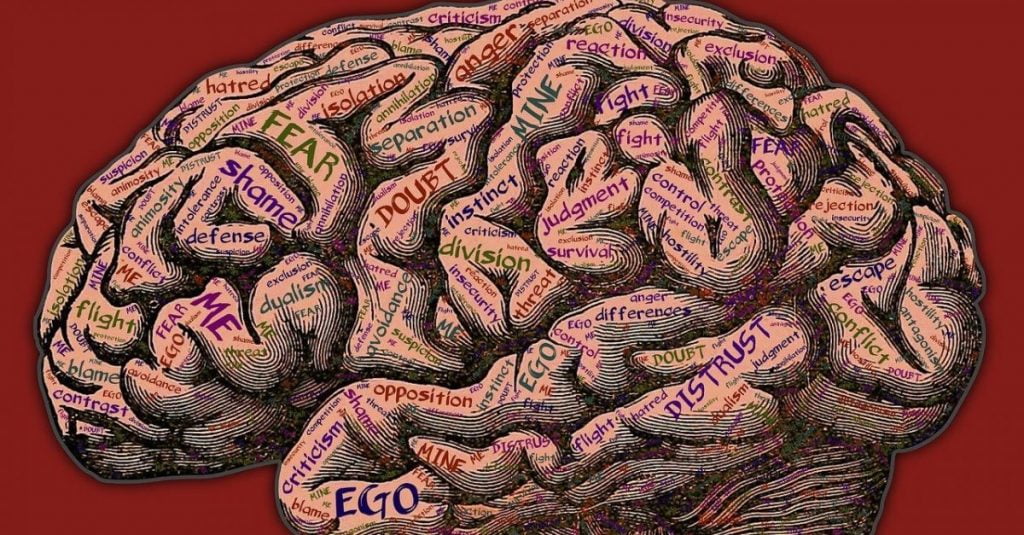Anxiety and depression are the modern plagues. Growing numbers of people believe that the world and even their lives lack meaning and are awful. They may find moments of happiness, but generally, they are stuck in the well of unhappiness. Sadly, the rates of depression have increased throughout all levels of society, with celebrities now also openly discussing their battles with depression.
In 2016, one in eight Americans were on anti-depressants. Lockdowns will have only made this situation worse. And not everyone with depression decides to use medication.
Some people who don’t use medication worry about the side effects, some worry about having to use it long term, and some worry about becoming drugged-out zombies.
Many of these people are looking for alternative methods to treat their depression. One question that I am sometimes asked is: can a life coach or NLP help with depression? Before I answer that question, there are many things to consider.
What’s a life coach?
You’re probably familiar with a sports coach: it’s the person who will get an athlete to perform at their best. What’s more, you might be familiar with business coaching and how it can guide a company to success.
Similarly, a good life coach will get their clients to perform at their best, helping them reach their full potential. The relationship between the coach and the client is more of a partnership, with both focusing on achieving a goal. The goals a client sets can be within any area of their life. And knowing what we want to achieve can sometimes be half the battle.
There are some similarities between coaching and therapy, but they should not be confused with one another. They may both use talking sessions to help people achieve their goals or work through problems, but their approaches are very different. Some key differences between them are:
- Therapy is focused on the past events in your life. However, coaching is more interested in what life is like now and how you want it to be in the future.
- The therapist will focus on “the why” of your problem. Coaches will focus on how to work to the solution.
- Therapy will focus on your thoughts and feelings. In comparison, coaching will explore your beliefs and behaviours.
- Therapy can go on for years. Coaching is more short-term.
- A therapist may offer you advice for ways to solve your problems, whereas a life coach will not.
What Is NLP?
NLP (Neuro-Linguistic Programming) is the study of our thoughts, language, and behaviours. Coaches will occasionally use NLP within their coaching sessions to guide clients to success.
NLP practitioners believe we all have strategies for almost everything we do.
Some strategies deal with small things, i.e. how we lock the car: Do you listen for a sound? Or flashing lights? Or just push a button and forget about it?
Other strategies are more substantial, i.e. how we request a pay rise from the boss: Do you produce a report demonstrating your value? Do you book a meeting? Or just ask? Do you give a lot of eye contact? Smile? Maybe the strategy is to send an email and hope for the best.
NLP examines the unique strategies we all use to navigate the world. Many of these are beneficial, but sometimes our strategies can keep us trapped and feeling lost.
A qualified and accredited NLP practitioner will help clients build better strategies, especially if theirs are not beneficial.
What is depression?
Depression is more than the occasional low mood we all feel at some point. It’s a mental condition when someone feels persistently negative and low over weeks, months and sometimes even years. It’s a real condition that’s difficult to just “snap out of”, and telling someone to just “be happy” can make things worse.
One of the most persistent stories we are told about depression is that a chemical imbalance in the brain causes it. However, the evidence for this is rather weak. The mental health charity, Mind, is even sceptical about this as a possible cause. That’s not to say that anti-depressants aren’t effective at treating depression because they can work. They change the brain chemistry and help someone to live a happier life.
What are some of the treatments for depression?
There are many treatments for depression. The severity of the case will usually result in a doctor recommending one treatment over another. Below is a list of some of the ways depression can be managed and treated. Not every case is the same, and some of these will be more effective for some people than others. Beyond this list, you can find further information on the NHS website.
- Exercise: This plays an important part in our mental health. Exercising daily for 30 mins, preferably aerobic (running, swimming, dancing etc.), can put us in a better mood. It releases endorphins (the feel-good chemical) in the brain. Exercise also improves our confidence and self-esteem because we feel better about our appearance. Exercise fights depression in three areas: physically, mentally and socially.
- Diet: Are you eating enough fruits and vegetables? Eating a balanced diet can lift our mood. Whereas, Eating too many processed and sugary foods can make us feel awful. If you have ever seen Supersize Me, you may remember how a short-term diet of McDonald’s made him feel depressed.
- Sleep: How many hours of sleep do you get a night? There may be a problem if you are not getting at least 7-8 hours. Inadequate sleep raises blood pressure, worsens memory, makes us irritable and causes stress. Therefore, getting the right amount of sleep is one of the keys to happiness. If you struggle to get to sleep, ensure the bedroom is cool, there are no distractions and give your brain a rest before you get into bed.
- Mindfulness: This is practising awareness of the present moment and being less focused on the thoughts in your head. It usually involves meditation, but that does not mean it’s spiritual or you need to be religious. Regular meditation can make us kinder to ourselves and stop the negative chatter swirling around in our heads.
- Relationships: Building strong connections with others and sharing our feelings helps. Simply put, we feel less alone. One of the biggest impacts of lockdown has been the rise in depression. We are naturally social and seek out connections with others. When this is taken away, many people feel depressed and alone. If you are feeling alone, reach out to family and friends and build a support network.
- Gratitude: Practising gratitude can change our mood. By focusing on the good things in your life and not the negative, we break the cycle. Over time, this can make us more optimistic. Gratitude is the polar opposite of depression and negativity. Therefore, it can be a good habit to build for a happier life. To begin, start a gratitude journal. Record 10 things every day that you are thankful for and read them back regularly.
- Therapy: There are many different types of therapy, and the right kind of therapy depends on the person and the situation. Cognitive Behavioural Therapy (CBT) is the most common and examines the past and looks at how you can manage your thoughts and feelings in the present moment.
- Anti-depressants: Doctors prescribe these drugs to clinically depressed people to help them manage their mood. They are effective in treating moderate to severe cases of depression. When a person decides to start medication, they may need to try several different drugs until they find the one that works for them. These drugs may have to be taken for years to manage the depression effectively and even long after the symptoms have gone.
Can a life coach or NLP help treat depression?
Possibly, but a doctor can only make that decision. The methods that an NLP coach uses are different from a therapist. The coach would focus on being happy and how their client can best reach that. A coach will help their clients edit and discard the strategies that don’t serve them while also helping them find better ones. Ones that help them reach their full potential.
Imagine a car on a dirt track. If it keeps driving on the same path, the grooves become deeper and deeper and harder to escape. This is kind of like the mind. If we consistently do the same things, these become habits. When the habits are negative, we enter a downward spiral. NLP can help someone break free of their deep-grooved track of emotions and start on a new path with new habits.
Furthermore, NLP could help with some of the other things that might make someone depressed. Depression can result from the things happening in our lives, such as strained relationships, career prospects or stress. A good coach can help someone work through those things by setting goals and finding strategies to deal with them.
If you are interested in learning more about ways to tackle depression, read the upward spiral by Alex Korb, PhD. If you are interested in having coaching, book a session today. The first one is free and gives us a chance to get to know each other.






